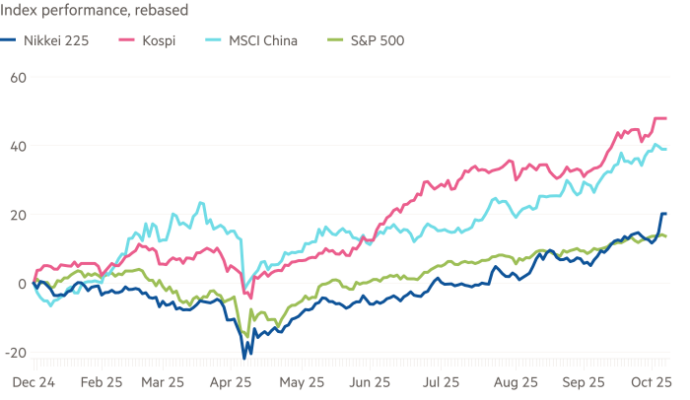Unlock the Editor’s Digest for free
Roula Khalaf, Editor of the FT, selects her favourite stories in this weekly newsletter.
Rishi Sunak’s hopes of sealing a trade deal with India this month have faded, along with the prospect of him signing the agreement on the margins of a critical match during the Cricket World Cup.
A lack of progress in opening up Indian markets to British professional services, including law and accountancy firms, is said by people briefed on the talks to be partly to blame for the impasse.
Downing Street and New Delhi had eyed the possibility of the cricket-mad UK premier travelling to India next week, taking in what could be a crucial encounter between India and England in Lucknow on October 29.
But British officials said the putative visit was now “very, very unlikely to happen”. One added: “The discussions are not where we want them to be.” Sunak said at a G20 summit in Delhi last month he would not “rush” a deal.
Indian media had reported a deal could be signed at the end of October, but talks have become stuck on the question of trade in goods and services, with Britain seeking better terms.
“The prime minister has said he will not sign a trade deal on arbitrary deadlines,” said a UK government official. “He’s going to do the right thing for the country.”
A senior British official added that India was struggling to differentiate between what it “needs” and what it “wants” and warned that “the risk in any negotiation is that if you focus too hard on what you ‘want’ at the expense of what you ‘need’, you might end up with neither”.
Britain hopes the deal will open up trade in whisky and cars to India as well as services and investment opportunities, while New Delhi wants better access for manufactured goods, services and work visas.
Liz Truss, former prime minister and trade secretary, was widely criticised for rushing a trade deal with Australia in 2021 so that it could be signed ahead of a G7 summit. The deal was widely criticised and Sunak has vowed not to repeat that mistake.
A person from industry familiar with parts of the agreement said that India was offering less access to professional services, including law and accounting, than was found in other modern trade agreements, such as the deal the UK signed with Australia.
“Some [services] sectors haven’t got anything close to what they might have hoped for, and negotiators have been very clear that they don’t see this deal as a game-changer,” the insider added.
The draft deal did not appear to “break new ground” in areas such as legal services, said another person familiar with parts of the deal. However, the professional services sector had always accepted that it would be difficult for the UK to extract significant concessions in particularly sensitive parts of India’s regulatory system. International law firms have historically been heavily restricted from operating in the country.
The person added that the deal’s success in the eyes of professional services firms may depend partly on wider issues affecting international business. These include restrictions on moving data and personnel in and out of India, ensuring regular dialogue between both countries’ regulators and investor protections in the event of allegations of asset confiscation, an issue that reared its head in previous disputes in India involving Cairn Energy and Vodafone.
In addition to its mooted deal with the UK, India has also sought to negotiate pacts with several other countries. But while it has secured deals with the UAE and Australia, talks with Canada have stalled amid an eruption of political tensions between the two countries.
“Our basic principles remain the same,” one senior Indian official in New Delhi said. “We want it to be fair, equitable and have respect for both sides.”
India’s commerce ministry did not immediately respond to a request for comment.


